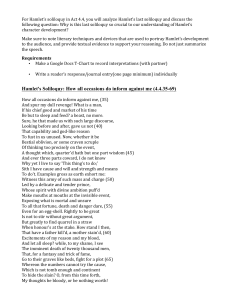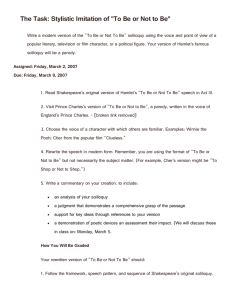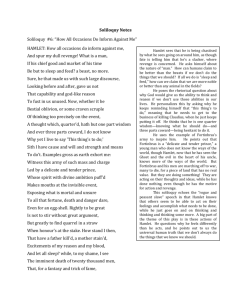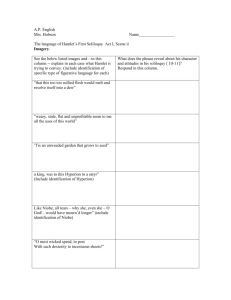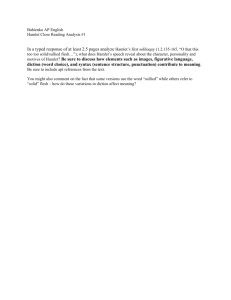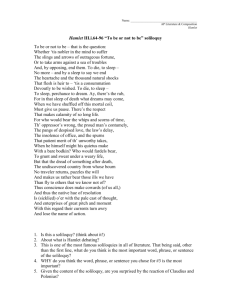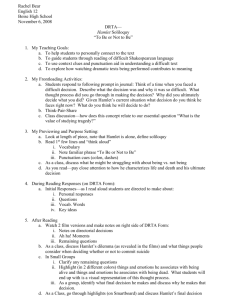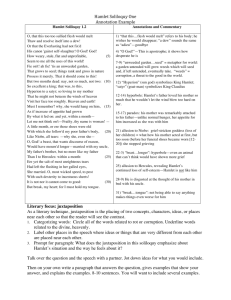Hamlet How All Occasions Soliloquy
advertisement
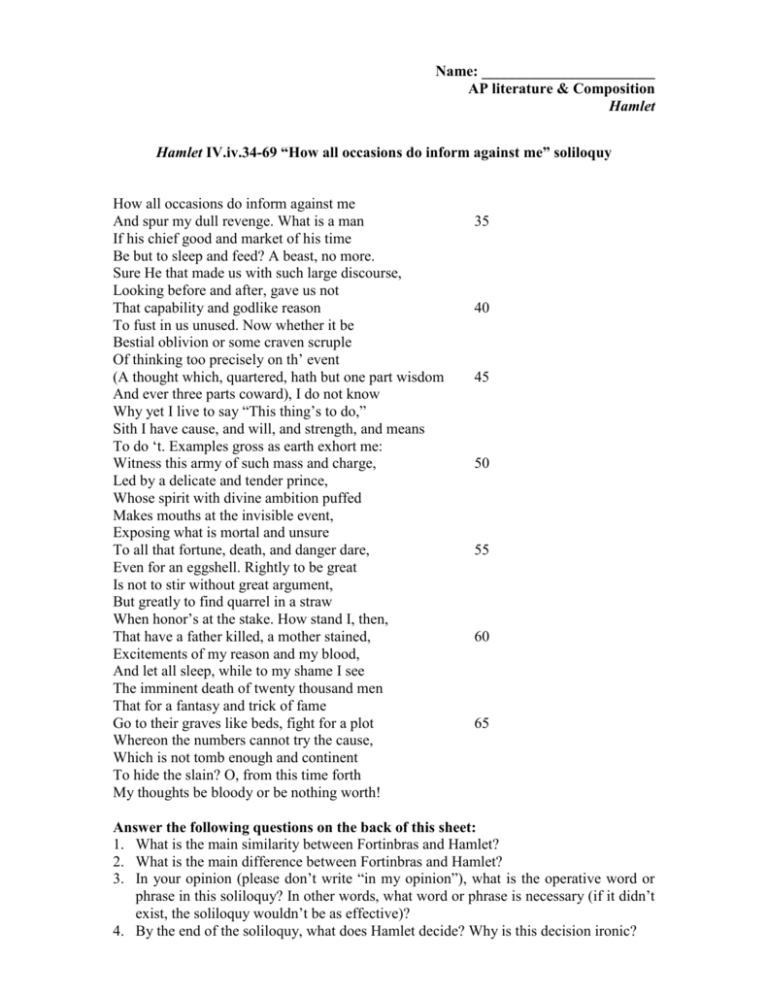
Name: _______________________ AP literature & Composition Hamlet Hamlet IV.iv.34-69 “How all occasions do inform against me” soliloquy How all occasions do inform against me And spur my dull revenge. What is a man If his chief good and market of his time Be but to sleep and feed? A beast, no more. Sure He that made us with such large discourse, Looking before and after, gave us not That capability and godlike reason To fust in us unused. Now whether it be Bestial oblivion or some craven scruple Of thinking too precisely on th’ event (A thought which, quartered, hath but one part wisdom And ever three parts coward), I do not know Why yet I live to say “This thing’s to do,” Sith I have cause, and will, and strength, and means To do ‘t. Examples gross as earth exhort me: Witness this army of such mass and charge, Led by a delicate and tender prince, Whose spirit with divine ambition puffed Makes mouths at the invisible event, Exposing what is mortal and unsure To all that fortune, death, and danger dare, Even for an eggshell. Rightly to be great Is not to stir without great argument, But greatly to find quarrel in a straw When honor’s at the stake. How stand I, then, That have a father killed, a mother stained, Excitements of my reason and my blood, And let all sleep, while to my shame I see The imminent death of twenty thousand men That for a fantasy and trick of fame Go to their graves like beds, fight for a plot Whereon the numbers cannot try the cause, Which is not tomb enough and continent To hide the slain? O, from this time forth My thoughts be bloody or be nothing worth! 35 40 45 50 55 60 65 Answer the following questions on the back of this sheet: 1. What is the main similarity between Fortinbras and Hamlet? 2. What is the main difference between Fortinbras and Hamlet? 3. In your opinion (please don’t write “in my opinion”), what is the operative word or phrase in this soliloquy? In other words, what word or phrase is necessary (if it didn’t exist, the soliloquy wouldn’t be as effective)? 4. By the end of the soliloquy, what does Hamlet decide? Why is this decision ironic? 1. What is the main similarity between Fortinbras and Hamlet? 2. What is the main difference between Fortinbras and Hamlet? 3. In your opinion (please don’t write “in my opinion”), what is the operative word or phrase in this soliloquy? In other words, what word or phrase is necessary (if it didn’t exist, the soliloquy wouldn’t be as effective)? 4. By the end of the soliloquy, what does Hamlet decide? Why is this decision ironic?
